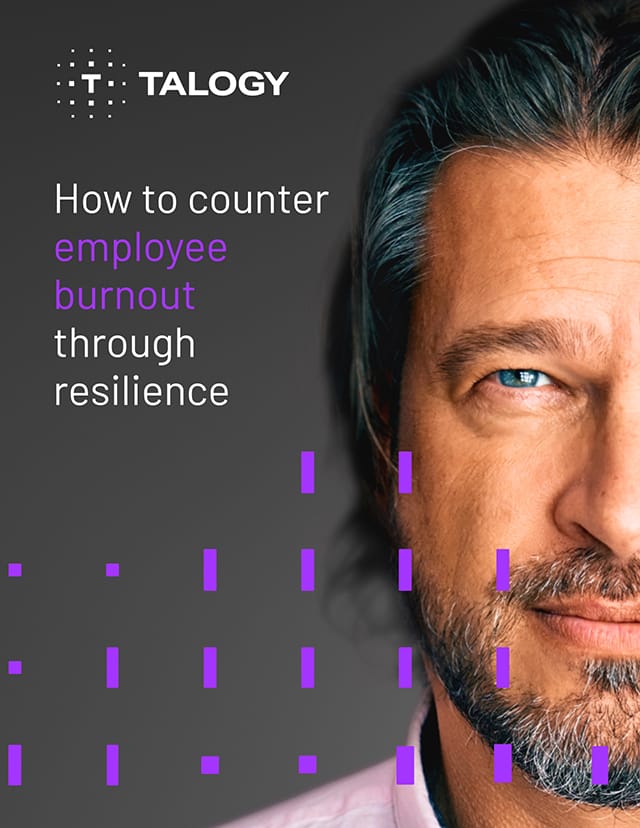Written by Alyssa Michels, PhD, R&D Consultant
Work recovery. What is it? The Oxford Dictionary defines the word recovery as ‘a return to a normal state of health, mind, or strength.’ After a day of work where an employee exerts physical and cognitive effort to meet daily job demands, recovery is essential. It allows employees to unwind from work stress and regain resources — such as energy or a good mood — that may be depleted.
The concept of work recovery has been studied quite extensively by industrial/organisational psychologists. This research has found that recovering from work helps employees to prevent chronic work stress which many times can lead to burnout. We can think of work recovery as a reset button of sorts that helps employees replenish their energy and refresh their minds after work.
How do employees practice work recovery and achieve a healthy level of workplace well-being? A key component to recovering from work demands is participating in what research calls recovery experiences.
Promoting workplace well-being: Recovery experiences
Research has found four fundamental recovery experiences that contribute to employee work recovery, employee well-being, and stress reduction.
- Psychological detachment
Time spent where you are not thinking about nor conducting work.A quick way to help psychologically detach from work is turning off any work-related notifications on your mobile devices outside of work hours. If a weekend without checking your work email sounds too difficult, it can be helpful to start small by designating just a few hours of notification-free time. Then, you can slowly work your way up to more work-free time.If you find you have trouble with ruminations about work during non-work time, try doing something you find truly engaging to distract yourself. For example, focusing on cooking a new recipe can keep your brain occupied with a task that’s not work-related. If you work from home, you might find it especially challenging to detach from your work because of its proximity to your home life. A good way to ‘trick’ your brain that it’s time to psychologically detach from work is changing clothes after work hours and designating a single location in your home where you only conduct work.
- Mastery
Time spent learning new skills and exploring aspects of life outside of work.Mastery experiences can help improve your stress management skills and boost your overall mood. Finding just 15 minutes a day to practice a new hobby or challenge yourself to learn something new is a great way to reduce work stress.Not sure where to start? Explore your creative side and check out your local recreational centre for classes on things like crocheting or painting. Or perhaps there’s a topic you’ve always wondered about, in which case you could head to your local library to learn more. Another great way to incorporate mastery experiences into your recovery time is through sports or volunteer work in your community.
- Relaxation
Time spent resting and rejuvenating.The first step to relaxing is to reject the idea that there is a ‘right’ way to relax and just do what you enjoy. Think about the activities you do that help you feel refreshed, recharged, and rejuvenated – and go do them! Consider what resonates with you. Maybe it’s reading for fun or sitting outside in nature. Or maybe it’s something more active like working out, taking a walk, or planting something in your garden.If you find it difficult to make time for relaxation, try marking off scheduled time during your workday to take short breaks, whether it be to get some fresh air outside, get a snack or drink, or even do a few jumping jacks! Short breaks during the day help prevent work stress from building up and becoming unmanageable, especially when those breaks are uninterrupted (so remember to turn off those phone notifications from work, if you can).
- Control
The extent to which you choose how you will spend your leisure time.Take control of your non-work time by making intentional decisions about how and when you spend your personal time. You’ll be surprised how exercising this control not only improves your happiness but also promotes more positive reactions to stressors.A good way to get in the habit of this is to block out time outside of work hours designated for personal activities or responsibilities — be it hobbies, childcare, homecare, physical fitness, etc. If you still find it hard to make the most of your personal time, try joining an organised activity with scheduled meetings. Anything from recreational sports teams, book clubs, nature organisations, or volunteer groups. The accountability of others might help encourage you to get out there and make the most of your work recovery time!
Now that you know the types of experiences that promote recovery, take a moment to think about your own work recovery routine. How do you spend your work breaks, after-work hours, and holidays away from work? What do you do to recover from daily work stress each day? How can you incorporate these key recovery experiences into your own work recovery routine to prioritise your workplace well-being?
Think about how you might integrate psychological detachment into your next holiday. Imagine you’ve just landed on a remote island for a week-long holiday. You walk into the grand hotel lobby, and the smell of coconuts and sunscreen hits your face. The concierge greets you with a lock box, where your phone will be placed for the entirety of your holiday. The European island of Ulko-Tammio allows tourists to experience just that: A holiday free of mobile phones that would surely help to promote psychological detachment. Of course, there are plenty of less extreme ways to take part in work recovery experiences as well.
The bottom line is that employers and employees alike benefit when employees’ work stress is reduced. Employees who engage in recovery experiences are not only less stressed but are more engaged, energised, and equipped to tackle job demands. Happy recovering!
References
Sonnentag, S., & Fritz, C. (2007). The Recovery Experience Questionnaire: development and validation of a measure for assessing recuperation and unwinding from work. Journal of occupational health psychology, 12(3), 204.
Sonnentag, S., Venz, L., & Casper, A. (2017). Advances in recovery research: What have we learned? What should be done next?. Journal of occupational health psychology, 22(3), 365.
McDonald, A. (2023, June 21). European tourist island declares itself a phone-free zone. CNN. https://www.cnn.com/travel/article/finnish-phone-free-island/
Michels, A. & Burns, G. N. (2021, April 14-17) Break Interrupted: The Role of Work Break Interruptions in the Recovery Process [Poster presentation.] Society for Industrial and Organizational Psychology, New Orleans, LA, USA. https://www.siop.org/Annual-Conference/Registration-and-Resources/Past-Conference-Programs/Program-Search-21



